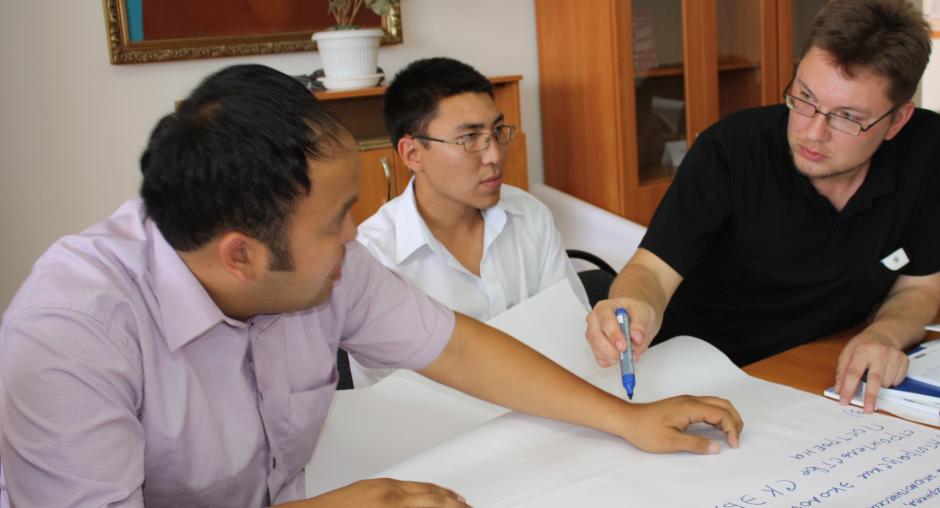OSCE Centre in Astana trains journalists in environmental reporting

ATYRAU, Kazakhstan, 9 June 2011 – An OSCE-supported training course on environmental matters for 25 journalists from Western Kazakhstan started today in Atyrau.
The OSCE Centre in Astana organized the two-day course together with the Administration of the Atyrau region, the non-governmental organization MediaNet, the International Centre of Journalism and the Zhaik-Caspian Aarhus Centre in Atyrau.
The course covers national and international environmental issues and the role of the media in awareness raising and environmental decision-making. Participants will also discuss which environmental challenges they feel matter most in Western Kazakhstan and how to report on environmental issues.
National and international experts will share successful investigative journalism experience in the sphere of environmental protection and speak about ways that journalists can contribute to enhancing public participation in environmental governance.
"Environmental security is an important part of the OSCE's comprehensive approach to security and co-operation which includes civil society participation in environmental governance. The OSCE Centre in Astana is pleased to support activities designed to enhance journalists' professional skills and legal knowledge in covering environmental issues," said Alexander Peytchev, OSCE Centre in Astana’s Economic Environmental Officer, at the course’s opening.
Yerbol Kuanov, the Head of the Natural Recourses Management and Environmental Control Department in the Atyrau region, added: “Today’s event is timely and important for Kazakhstan and particularly for its Caspian Sea area, since it will contribute to the enhanced participation of mass media in environmental decision making and help promote good environmental governance.”
“The channels of audience’s perception, especially those of the young people, change incredibly fast,” added Igor Brattsev, Director of the non-governmental organization MediaNet, the International Centre of Journalism. “It is important to not only think about the content, but also make best use of existing capacities for presenting information to an audience utilising modern technologies and taking into account journalism trends.”
The course forms part of the Centre’s work to strengthen the access to information and the public participation in decision-making on environmental issues, and in promoting the freedom of expression and freedom of the media in Kazakhstan in general.
